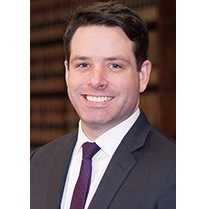SMALL BUSINESSES, BIG RELIEF UNDER CARES ACT PAYCHECK PROTECTION PROGRAM
 By: Kyle Day
By: Kyle Day
The COVID-19 pandemic continues to have devastating effects on small businesses across the country. The Coronavirus Aid, Relief, and Economic Security (“CARES Act”) includes several provisions offering relief to small businesses, including the Paycheck Protection Program (“3P”), which authorizes $349 billion in federally-secured, potentially forgivable loans to qualifying small businesses. The program expands the SBA’s 7(a) loan program which authorizes designated financial institutions to issue loans to qualifying small business on the terms set forth under the CARES Act. 3P loans are fully guaranteed by the federal government, and the typical 7(a) loan requirement for borrower personal guarantee is waived.
Eligibility. Under the CARES Act, any “small business concern” under existing SBA rules, any business concern, nonprofit 501(c)(3), veterans organization (501(c)(19)), or tribal business concern that employs not more than 500 employees (or, if applicable, the size standards previously established by the SBA). The 500 employee limit is applied on a per location basis for businesses operating in the accommodation and food service industry. In addition, sole proprietors, independent contractors and other self-employed individuals are eligible for the program. For businesses with existing 7(a) loans, beginning no later than 30 days after the date on which the first payment is due under those loans, the SBA will pay all principal, interest and fees for those loans for 6 months. If the existing loan is currently in deferment, the SBA will begin making payments after the deferment period.
Loan Amount. The amount of a 3P loan is calculated as the lessor of (a) the sum of 2.5x the average total monthly payments for payroll costs incurred during the one year period prior to the date of the 3P loan and the outstanding amount of an Economic Injury Disaster Loan (“EIDL”) made between January 31, 2020, and (b) $10 million. For purposes of the formula, “payroll costs” include compensation to employees including salary, wages, commission or similar compensation, cash tips, vacation, parental, family, medical, or sick leave, separation payments, group health care benefits, retirement benefits, and state and local taxes; and compensation to sole proprietors or independent contractors that is not in excess of $100,000. However, payroll costs excludes compensation paid to any employee in excess of $100,000 annually, federal income taxes, compensation for employees who do not reside in the United States, and any wages for which the applicant receives a credit under the Families First Coronavirus Response Act (FFCRA), which Lane & Waterman’s Abbey Furlong discusses here and here.
Uses. 3P loans can be used for traditional 7(a) loan purposes, including payroll costs, mortgage interest payments, rent, utilities and interest on debt incurred before February 15, 2020.
Terms. Under the CARES Act, the maximum interest rate that a lender may charge is 4% per annum on a 3P loan; payments of principal, interest and fees by the borrower can be deferred for a period between 6 months and 1 year; and the maximum maturity of 10 years. Although, Treasury Department guidance issued on March 31, 2020, specifies that all 3P loans will carry a fixed interest rate of 0.50% (updated to 1.00% on April 2, 2020), with payment deferrals of 6 months, and maturities of 2 years.
Forgiveness. The principal amount of a 3P loan may be forgiven in up to the amount of payroll costs, interest on mortgage obligations incurred before February 15, 2020, rent payments for leases in effect before February 15, 2020, and utility payments for services which began before February 15, 2020, during the 8-week period following the origination of the loan. The Treasury Department’s March 31 guidance provides that not more than 25% of the forgiven amount may be for non-payroll costs. The amount of the loan available for forgiveness may be reduced in the event the borrower lays off employees or decreases employee compensation during the 8-week period described above. Under the CARES Act, the amount of loan forgiveness is not included in the borrower’s gross income as cancellation of indebtedness income.
Application Process. Qualified small businesses should apply for a loan directly from an approved 7(a) lender that has opted to participate in the program. The SBA has created materials to assist small business with the application process, and the Treasury Department has posted the borrower application here. The Treasury Department’s guidance indicates that small business and sole proprietorships may start applying for 3P loans starting April 3, 2020, and independent contractors and self-employed individuals may start applying for 3P loans starting April 10, 2020.
Kyle R. Day joined the firm in 2013 and maintains a general tax and transactional practice, including tax planning, controversy and compliance, mergers and acquisitions, entity formation and governance, securities compliance, real estate, general business, and estate planning.

